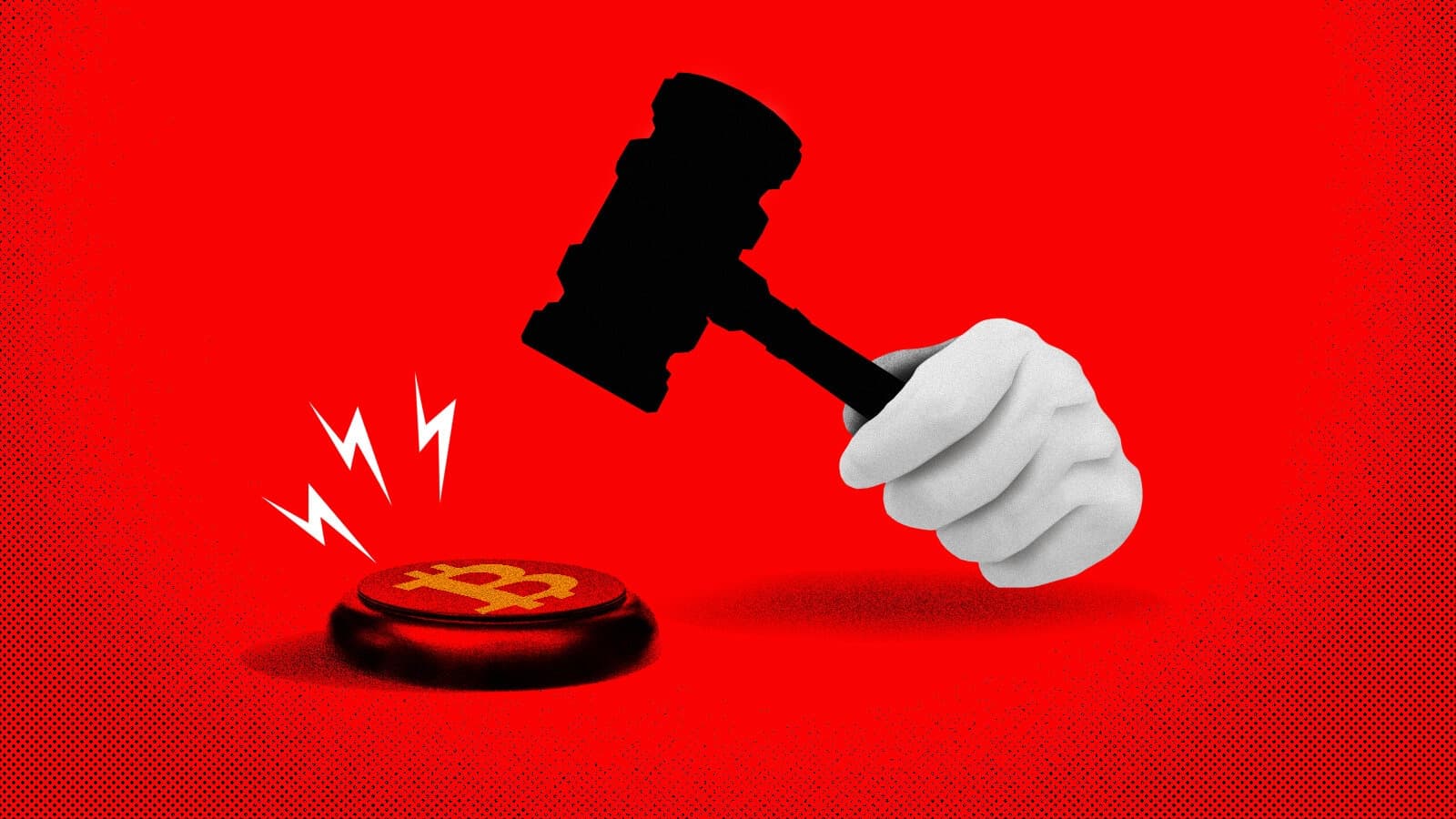BlockFi’s ‘Fugazi Bailout’ Condemns Crypto Lender to Bankruptcy
BlockFi has roughly 100,000 creditors with $1 billion to $10 billion in liabilities and assets

Blockworks exclusive art by axel rangel
Troubled lender BlockFi has filed for Chapter 11 bankruptcy protection, making it the next victim of FTX’s fallout.
Once one of the biggest and most rapidly growing startups in the cryptocurrency space, BlockFi has been struggling to keep afloat since the collapse of Three Arrows Capital and other crypto companies in May.
In July, competitor crypto lender Nexo offered to acquire BlockFi for an estimated $850 million. But that offer was turned down by the company in favor of a $400 million revolving credit offer from FTX US.
Now, with FTX in shambles — facing legal and financial troubles of its own — BlockFi is once again left to fend for itself.
“As part of its restructuring efforts, the Company will focus on recovering all obligations owed to BlockFi by its counterparties,” the company said in a statement, adding, “the Company expects that recoveries from FTX will be delayed.”
A representative of BlockFi declined to comment further.
No surprise
BlockFi filing for bankruptcy should not come as a surprise, a source who has closely worked with BlockFi told Blockworks.
“[It] was obvious once FTX went bust, because they had a Fugazi bailout,” the source said.
This sentiment is shared by many in the crypto community.
“There have been a lot [of] totally unexpected things that have happened in the crypto space over the past 2 months. BlockFi filing for bankruptcy is not one of those things,” Guy Turner from Coin Bureau tweeted.
Early signs of the crypto lender’s insolvency were apparent after it suspended withdrawals earlier this month amid FTX developments.
Its latest bankruptcy filings reveal that BlockFi has roughly 100,000 creditors with $1 billion to $10 billion in liabilities and assets.
Among them is the Securities and Exchange Commission, which the now-bankrupt company is said to owe roughly $30 million.
In February, BlockFi reached a $100 million settlement with the SEC after it failed to register as a securities company and made misleading statements about its risk estimates on loan portfolios.
Although BlockFi’s next steps are undetermined, activity on its platform has all been halted for the time being and its remaining $256.9 million at hand will be used to support its restructuring process.
Get the news in your inbox. Explore Blockworks newsletters:
- The Breakdown: Decoding crypto and the markets. Daily.
- 0xResearch: Alpha in your inbox. Think like an analyst.






